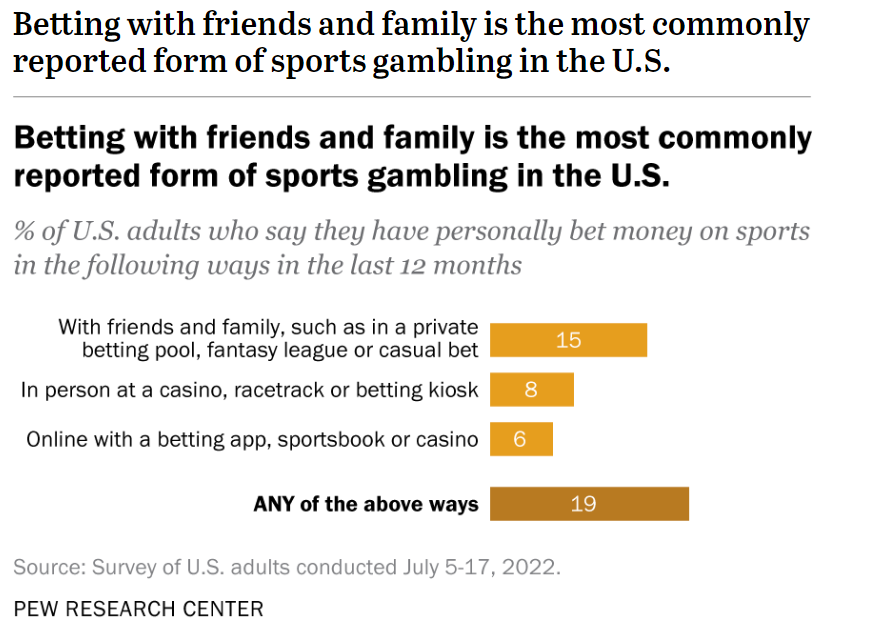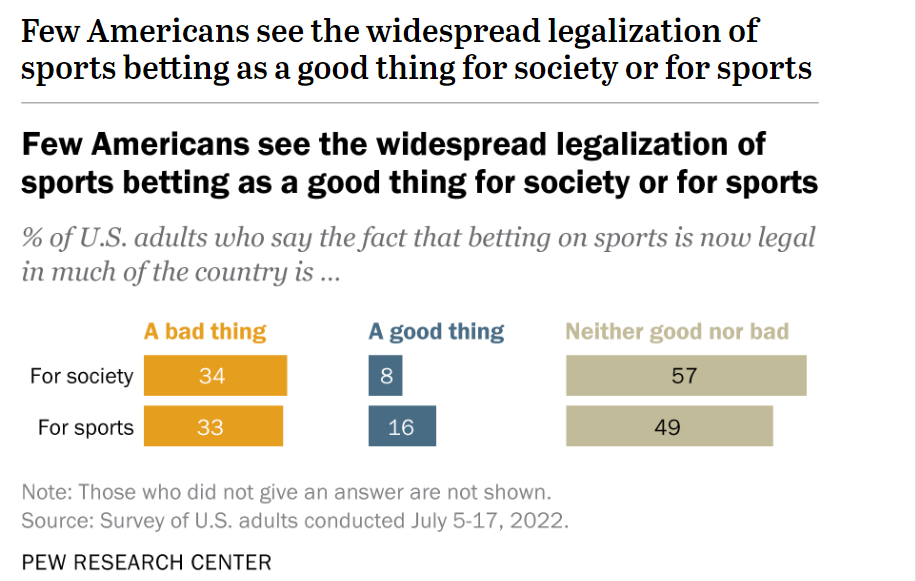According to a Pew Research Center survey, 19% of US adults placed a wager on sports in the past year. While this is an exciting number, the breakdowns contained in the Pew survey are far more enlightening.
There is a lot of conflation between what I’ll call a friendly bet and gambling. The simplest way to separate the two is a friendly bet between individuals – a $5 football square, a season-long fantasy sports league, and an office March Madness bracket. Gambling is between a player and the sportsbook or entity whose sole purpose is facilitating gambling.

Per Pew, 8% of respondents gambled, placing a sports bet through a legal retail location. Just 6% placed a sports bet online. That means 1-in-12 US adults can be classified as having placed a sports bet in the last 12 months.
The other 11% were involved exclusively in friendly betting.
8% is still a very strong number, but that number includes anyone who has placed a single bet, for any amount, in the last 12 months. The Pew survey doesn’t ask about the frequency of betting. The number of frequent bettors (weekly or daily) is likely around 5% or 1-in-20 adults.
Why This Matters
These distinctions are important as they indicate the actual value of legal sports betting in the US.
The 11% of friendly bettors aren’t opposed to placing sports betting, but they aren’t exactly seeking out legal sports betting options either. These are social bettors, and the most likely avenue for them to place bets with a sportsbook is one of circumstance. If they happen to be near a sportsbook, they might place a bet on a major event or throw down a small wager on their favorite team to win it all at the start of the season.
From my perspective, the Pew survey shows that about 5% of US adults are quite interested in legal sports betting.
A Few Other Tidbits
The number of bettors provides the headline number, but it was just one aspect of the survey. Two other questions also caught my attention.
Have You Heard the News?
Despite the wall-to-wall coverage and calls to rein in marketing, about half of the respondents have read or heard nothing about sports betting.
The question was phrased by Pew as follows: “As you may know, betting on sports is now legal in much of the United States. How much have you read or heard about this?”
Per Pew, “Overall, 56% of adults say they have read or heard a lot (12%) or a little (44%) about the fact that sports betting is now legal in much of the country, while 44% say they have read or heard nothing at all about it.”
Is Sports Betting Good or Bad?
Another interesting result was the overall attitude towards sports betting.
The question was phrased as “Thinking about the fact that betting on sports is now legal in much of the country, do you think this is generally…”
The results per Pew: “Regardless of how much they have heard or read about it, a majority of adults (57%) say it is neither a good nor bad thing for society, while about a third (34%) say it is a bad thing. Only 8% say it is a good thing for society.”

A similar number (34%) believe sports betting is a net negative for sports, but half as many (16%) believe it’s good for sports.






